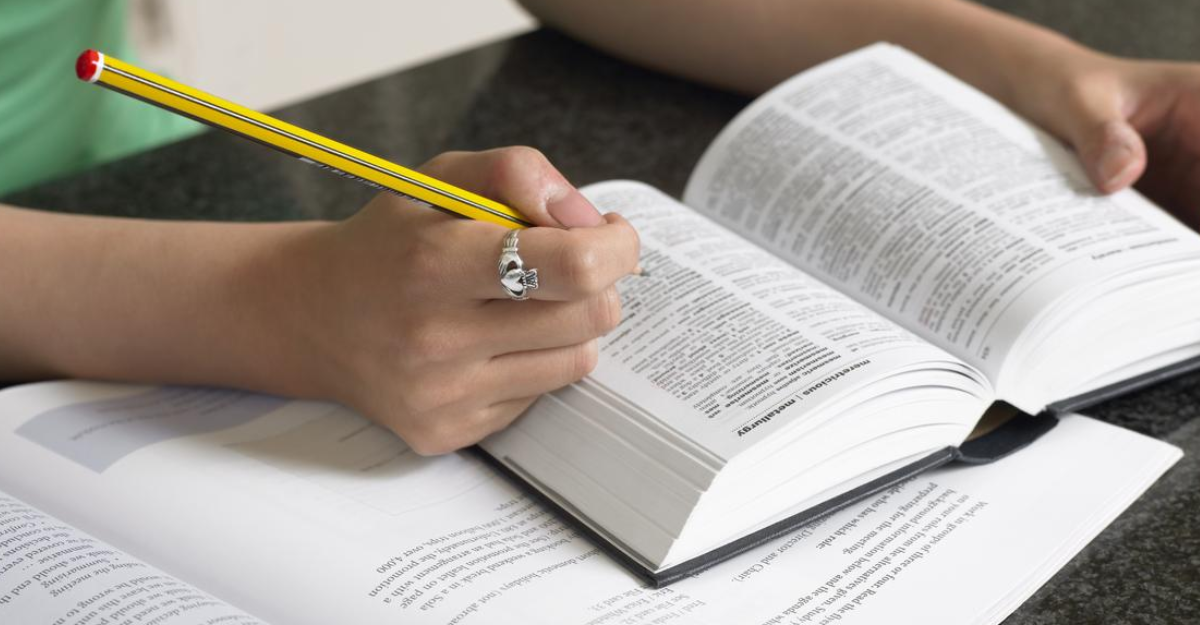-1763542039808.png)
What Does Cambridge Dictionary’s Word Of The Year ‘Parasocial’ Mean?
In 2025, parasocial has quietly become the unlikely emblem of our times: a word once safely confined to sociology textbooks is now officially Cambridge Dictionary’s Word of the Year, but its ascent makes sense because the kind of connection it names has become something like a cultural undercurrent, one that courses beneath our feeds, our fandoms, and even our evenings alone with chatbots.
What Does ‘Parasocial’ Mean?
According to Cambridge Dictionary, parasocial is defined as “involving or relating to a connection that someone feels between themselves and a famous person they do not know.” It can be a character from your favourite television series, a social media influencer, actor or even your AI chatbot.
Its examples include the parasocial interest displayed by fans when pop star Taylor Swift got engaged to American footballer Travis Kelce.
Don't miss: '67' Becomes Dictionary.com’s Word Of The Year For 2025: Here's What It Means
View this post on Instagram
However, it was first coined in 1956 by sociologists Donald Horton and Richard Wohl. The term was used to describe how television viewers developed emotional relationships with on-screen personalities; even though those personalities had no idea the viewers existed.
1
2
3
4
Fast-forward nearly 70 years, and the terrain has shifted dramatically. No longer limited to TV icons, parasocial relationships now stretch to social media influencers, confessional podcasters, AI chatbots — our carefully curated avatars of familiarity. Even Cambridge’s lexicographers say the spike in searches for parasocial came in part because people were turning to chatbots as “friends, confidants, or even romantic partners.”
Why Is ‘Parasocial’ Cambridge Dictionary’s Word of the Year?
Cambridge Dictionary named parasocial its Word of the Year precisely because it “captures the 2025 zeitgeist.” According to Cambridge’s chief editor Colin McIntosh, public interest in the term exploded, with searches surging on both the dictionary website and Google.
Psychologists, too, are paying attention. Simone Schnall, a professor of experimental social psychology at the University of Cambridge, said in a statement that the rise of parasocial relationships “has redefined fandom, celebrity and, with AI, how ordinary people interact online.”
She warned that many of these bonds can become “unhealthy and intense,” noting that people increasingly treat influencers (or chatbots) as if they were not just known, but deeply trusted, despite the relationship being entirely one-way.
Don't miss: Oxford Word Of The Year 2023: Check Out The Words That Made It To The Top
Are All Parasocial Relationships Toxic?
Here’s where nuance matters: no, not all parasocial relationships are toxic. In fact, many are relatively benign, even beneficial.
Clinical psychologists note that parasocial relationships often provide comfort, especially for people who feel isolated or lonely. They can also serve as positive role models: a sports figure, a creator, or even a fictional character can inspire better habits, self-esteem, or personal growth.
For those who struggle with social anxiety, parasocial bonds can be emotionally nourishing without the drain of a reciprocal, real-life relationship. They may also help in identity formation. During adolescence, for instance, people use these relationships to imagine what they want their relationships to look like, or who they want to become.
However, it has several risks too. When parasocial relationships become too dominant, parasocial relationships can crowd out real-life connections. Clinical experts warn that relying too much on one-sided connections may worsen feelings of isolation.
In extreme cases, what some call ‘borderline-pathological’, these relationships can lead to obsessive thinking, emotional dependency, or even stalking.
With AI, the risks are also evolving. Emerging research suggests that emotionally responsive chatbots can create illusions of intimacy, and for vulnerable users, this can mimic toxic relationship patterns, reinforcing dependency and blurring reality.

Should We Be Worried About Parasocial Relationships?
Yes and no. The elevation of parasocial to Word of the Year signals a broader cultural self-awareness: we are waking up to the fact that many of our emotional ties are no longer just with people we meet in person, but with personas, media figures, and digital agents.
That awareness is a powerful first step. Recognising a parasocial relationship for what it is gives us room to ask: Is this relationship helping me, or hurting me?
For many, these connections are harmless, even healing. But for others, especially when they become a substitute for real social interaction or when they fuel unhealthy attachment, they can be destabilising.
As technology changes the way we relate, the concept of parasociality is a mirror reflecting how modern intimacy has become less about mutual give-and-take and more about the illusions we hold in our heads.
Image source: Cambridge Dictionary
For more such stories, stay tuned to HerZindagi.
Also watch this video
Herzindagi video
1
2
3
4